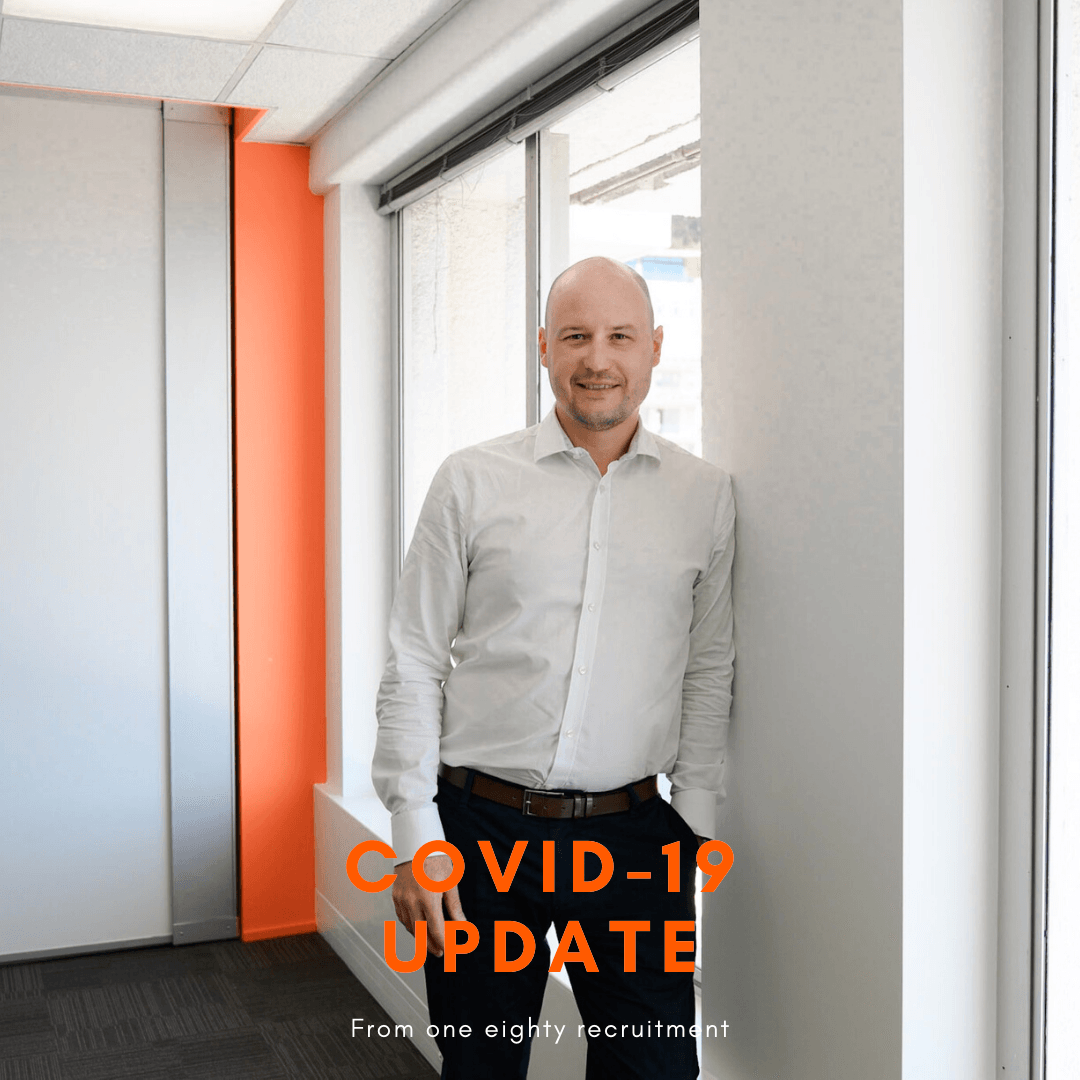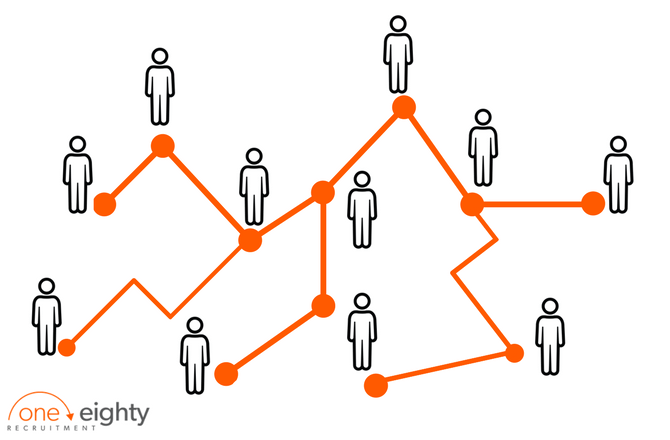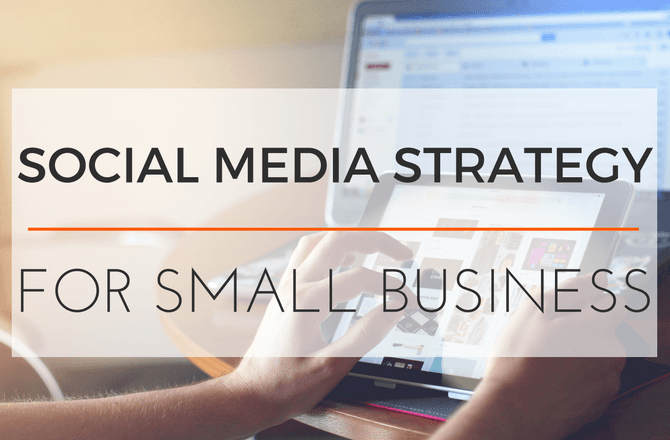Most Popular

This blog post is being published during the COVID-19 outbreak in New Zealand. The current COVID-19 situation means working from home is the new norm for an unknown period. To ease the transition, we’ve put together five suggestions to make working from home better. Making Working from Home Better 1. Dress for Work It’s tempting to roll out of bed and straight to your new ‘working from home’ desk. But wearing work clothes is going to help mentally shift you into work mode. Get dressed for work, and once your working day is finished, get changed out of your work clothes. It’s going to feel great! 2. Prepare Your Day + Chunk Time The night before, plan your day and set boundaries for the day. Provided your employer is happy with it, there is the opportunity to make the day work better for you. Schedule in exercise, lunch in the sun, and a micro break in the afternoon. There is also the opportunity to chunk time. Chunk activities together with the same purpose i.e. Emails/Research/Meetings/Sales. This makes it easier to control your flow of work, and makes sure you’re able to handle interruptions when they come, and get back on task when you engage again. 3. Turn Off Notifications Interruptions = getting sucked into an unproductive vortex. Turn off notifications, and then set a reminder to check emails three times a day; start of the day. Just before lunch, and once more just before you finish your scheduled working day. Don’t get sucked into the email vortex that kills many hours for even the most productive of remote workers. The same applies for social media and phone notifications. 4. Move Your Body It’s important for mental health to move (and it’s been proven to boost immunity). Currently it’s ok to get out into nature and go for walks – that’s an option following physical distancing guidelines. Alternatively, there are hundreds of free yoga and workout videos available online to tap into. All this will help you be more productive, and also feel more balanced. 5. Set Up Online Events Set up virtual team lunches and Friday night drinks (BYO of course). Set up the camera and share general office chit chat during shared event times. Don’t forget to get together for the birthday cake (online of course) and keep human connection high. Do you have any other tips for working from home? The one eighty team have been working from home for a while now in preparation for the Level Four NZ Government imposed lock down which means we are fully set up to be able to engage and chat with you should you have any hiring or career points to discuss – we’d love to hear from you. Please feel free to contact us.

This blog post is being published during the COVID-19 outbreak in New Zealand. A Message from GM Mike Westbury New Zealand is now in full lock-down, Alert Level 4. For one eighty recruitment this means a different way of working. We are lucky enough, because of our technology, to be able to easily work from home. Some businesses are facing challenges with the recruitment process. However, having said that, we are also seeing pro-active robust businesses continuing the hiring process online and taking the opportunity to interview the top talent that is currently available. We are incredibly grateful for front line professionals fighting against COVID-19. While the rest of us #stayhome please contact me should you wish to discuss the state of the market. Thank you for your continued support, however, it is time for us to support you. Stay safe. Mike Westbury, 021888907 | mike@oneeighty.co.nz General Manager and Founder. Capacity Overflow Assistance with Temps Some business are experiencing an overflow due to COVID-19. Temporary and permanent Professional Support Services are available to support your business during this time. These services might be high call volumes, processing applications or collecting data. These temps are able to work from home or support essential services. We can provide temps for: Call Centre Administration Data Entry Processing Temps are an easy option as one eighty takes care of Ministry of Justice, referencing, and all background checks. Temps are paid and employed through one eighty taking all the hard work out of employing. one eighty simply invoices your business directly. Meet Susannah Shackel. Experienced Bulk Recruiter. Susannah Profile picture2

There’s an old saying when it comes to job hunting, “It’s not what you know, but who you know.” And I can attest to this as I wouldn’t have gotten half the job’s I’ve had if it hadn’t been for people in my network. Nowadays, thanks to LinkedIn growing your network has never been easier; A couple of clicks and your network is bigger! Unfortunately, the fact still remains that face to face is the best way to network. So in an effort to highlight why and get you motivated to get out networking in person, I’ve created a brief guide. Why should I network? Simple. Do you want a job? Do you want to meet like-minded people? Do you want to build your personal brand and reputation? Networking helps with all of these things. Though, I feel I should stress that when building your network you are not trying to use people! You should be networking to build professional relationships, learn and/or find a mentor. These connections may not produce a job opportunity until 5 years on, so employment today shouldn’t be your only goal. Remember, New Zealand is a small market and everyone knows everyone, so be careful how you treat people. How do I network? In our social media age, it’s easy to assume that making “connections” online is enough. Unfortunately, it’s not, it’s a start at best. The best way to network will always be getting in front of the person and showing them who you are and what you have to offer. An important thing for everyone to note is that people love talking about themselves. Offer to buy them a coffee in exchange for 30 minutes of their time. The fact that you’ve put the effort in, to reach out is a huge ego boost for anyone you’ve asked! And who doesn’t like a little ego boost! Go prepared with a few questions about them and their job and have a conversation. Make the effort to get their business card. If you hate coffee or are too shy to put yourself out there like this, then I suggest you go along to industry events. We, recruiters, have monthly meet-ups where we discuss things going on in our industry. Most industries have associations that will run similar things. You don’t have to talk at these events; in fact, you’ll probably spend most of your time being talked to. So go and take advantage of the free drinks and nibbles then dip out. At the very least you’ll gain some knowledge and who knows maybe someone else will break the ice and chat to you first. If they do, get a business card. What do I do after meeting someone? I repeat get their business card before they go! If they don't have any business cards, make sure you've got their full name so you can connect with them on LinkedIn. Then follow up. Following up is important if you want to be remembered. Send them an email within a day or two of meeting them. It’s nice to include something along the lines of how much you enjoyed your chat and ask to stay in touch. Please note: Staying in touch doesn’t mean emailing them every day. Networking is a bit like dating, keep it casual at the beginning. You can become best mates later on but otherwise, keep it professional. People are busy so try to catch up for a coffee or at an event every couple of months. This will help keep your connection “warm” in the event they hear of an opportunity suited to you. What I’ve gained from networking? The reason I’m promoting networking here is that I have gained so much from it already. Since I started networking in the HR and Recruitment industry just over a year ago, I’ve made some great friends, become a founding member of the Summer of Biz internship program and I’m currently in my second position within the industry, I'm still studying towards. Networking doesn’t have to be hard, scary or time consuming just challenge yourself. Try to fit one networking event or a coffee chat each month as a start. At the very least you’ll meet some interesting people and learn more about your industry. Hope this helps! Jasmine

A few weeks ago, I outlined my thoughts on salary levels within the construction sector, this focused on core site based roles such as site manager and quantity surveyor. On top of recruiting for this area we also recruit for sub-contractor roles or suppliers of products to the building industry sector (I know this is a bit of a mouthful, I haven’t come up with a succinct name for this sub-sector yet!). It is important to note that these packages are purely from my point of view based on discussions with clients and candidates. There is no science to it, but I have a reasonable handle on what you need to pay to secure a top candidate.

In growth mode, small and medium sized businesses are constantly changing, adapting and improving. Most employees are welcoming of a change in strategy or process, especially if its going to improve how they work, make them and the business more money, and improve the business’ reputation in the marketplace. These employees are engaged and are willing to do what is best for your business – you’ll want to keep these awesome people on for as long as you can! Sometimes after a change, however, a few employees will create resistance or resign. This may seem like a loss, and it can be stressful, no doubt about it. But hang on – you don’t really want these people around anyway! You have committed to a change for the better and they aren’t willing to participate. So, what’s the next step? You may have guessed it… Recruitment! In our line of work, we have seen this scenario play out time and time again and we love being a part of the process to ensure the right people are hired who are aligned with your business strategy. Let’s look at a case study and go through our recruitment consulting process

We are about to embark on a five-part blog series covering a few different recruitment trends in the 2016 market. Hopefully have some relevance to both jobseekers and employers alike! These won’t be your usual cliché recruitment trends like: “salaries are up”, “candidates are in demand” and so on. We will touch on candidate shortage in certain markets, but the focus will be knowing whether your recruitment project is one of finding someone or selecting someone... Stay tuned for this one. This week we are focusing on educating employers on understanding the candidate’s viewpoint. My advice if nothing else during the recruitment process is to always think – how will the candidate feel about this? So, let’s put ourselves in the candidate’s shoes… Here are a couple of real life scenarios. While reading these try to think about how you would feel if you were the candidate. You meet with your favourite recruiter and discuss a great new role that suits you and your career aspirations perfectly. You then attend an interview a few days later directly with the hiring manager at the employer’s premises. It goes really well, the role is what you want, the managers seem like good people. You are keen. However, 10 days pass and despite your favourite recruiter keeping in contact with you they have not been able to extract any sort of feedback or next steps from the client. Finally, you receive feedback through email which is an offer of employment. Now this is good, don’t get me wrong, but the poor candidate has been sitting there thinking what is going on - do they like me? Am I a fit for them? Do my salary expectations stack up? And then the first feedback is an offer. This candidate took it well and it is a great fit, but they could have just as easily said, “No, sorry I don’t think these guys know how to communicate with people effectively, this is a warning bell for me”. Another example: An employer has a really robust and consistent interview process, which includes 3-4 interviews where you meet the Directors, the Manager and have a coffee offsite with various team members away from management. The process went really well and the candidate (who was actually approached for the role) came around to the fact that this was a great opportunity and he was really keen. However, after verbally agreeing terms, it then took a week to get the contract together. Again, the candidate was left waiting around wondering where the contract was, and whether it was normal for it to take this long. This delay portrayed a warning sign around the employer’s ability to move quickly on things, and the candidate wondered if they were getting cold feet… In the end, through communication, this situation was easily resolved. There ended up being valid reasons for the delay and the robust interview process earlier had given the candidate the comfort and knowledge of who they were dealing with. Lesson here: communicate with your candidates! Don’t assume that you can keep them waiting without good reason and that the person you approached isn’t looking at other offers. Getting the contract together quickly shows that you are committed to them and the offer, and that you are organised! I hope these examples give some insight into how candidate’s feel during the recruitment process. Furthermore, these two scenarios only touch on those who were successful… I could write a whole other blog on how to reject candidates, how candidate’s feel when being rejected and the impact on your business. But another time. Moral of the story, treat your candidates really well. It’s not all about the employer – this is a two-way street! One could argue that it’s as much about the employee as it is about the employer finding the right person.

No matter what industry you are in, knowing your customers is key. Studies have shown that good and thorough service trumps fast service pretty much every time, and going above and beyond for your customers to solve their problems results in customer retention and satisfaction. People are more likely to refer your business to others if it was memorable, thorough and friendly – rather than if you got them out the door quickly. At one eighty, we understand that our clients have different businesses, different wants and needs, as well as different budgets, and we tailor our services to suit. Recently, we started a recruitment campaign for Maycroft Construction who, newly based in Palmy, are looking for a qualified Quantity Surveyor and a Site Manager. Mike and I took a day out of work to travel up to Palmy, meet the team, chat about what (and who) they are looking for, and see some of their current construction projects. We gained some pretty valuable insights into team culture, what a typical day is like working for Maycroft and also the benefits of living in the Manawatu. Learning these insights first hand is invaluable to the recruitment process, if there’s one key piece of information candidates want to know, its: “what is the potential workplace like?” Being able to say we spent a whole day with the team tends to spark interest from candidates who want to be informed, and especially passive candidates who we may be trying to sway towards Maycroft! I’ve put together a short video vlog below of what we got up to on our client visit with Maycroft in Palmy, enjoy!

Until recently, I hadn’t put much thought into “liking my job”. I had been studying my whole life, and part-time jobs on the side were just that – on the side. They were a means to an end; they helped me earn a little more cash to help me get by that week. I felt stuck in the short term and was lost. I worked in retail for a while, and while I enjoyed the interaction part of my job with (most) customers, I felt very unengaged with my work. After a couple of years, I felt I had learnt all I could learn and I didn’t see how the job was going to help me further my career and be successful. I would drag myself to work and count down the clock… From this experience, I firmly believe that being unengaged and unhappy at work has a flow-on effect to other aspects of your life. Combine this with studying – and you have a hot mess of exhaustion and little to no daily routine. You find yourself walking around like a zombie with the weight of the world on your shoulders. Not a good way to live! I recently saw something pop up on Facebook and it really resonated with me: “Don’t work for eight hours at a company only to go home and not work on your own goals. You’re not tired, you’re uninspired” Now, I go to work for eight hours at a company I actually enjoy working at and, even better, when I go home I have the energy (and time) to do what I want to do and work on my own goals. This would have to be one of my favourite parts of working and being in a good routine. You can actually relax in the evenings and weekends – something you don’t always have the luxury with when studying as well. The “always on” aspect of studying really took a toll on me; I “expected” good grades and put a lot of pressure on myself. Enjoying what I do at work has had a huge impact on my personal life – friends have commented that I am happier, more outgoing, more relaxed and at ease in general. Why I like my job It is varied and interesting – no two days are the same and I am always busy with special projects that I work on for the business. I love seeing the results of hard work coming to life. I am given responsibility and am trusted to make decisions (thanks Mike!). This is huge in feeling empowered and engaged in what you do. It is flexible – if I wanted to I could work from anywhere (right now I am sitting in a café having a coffee while I write this blog…). It is my first ‘industry job’ where I am gaining so much valuable experience and am given the opportunity to do a variety of work to help me decide which direction I would like to go in. No longer am I stuck in the short term, I feel like I am doing something that contributes to my future in a positive and productive way. The people and company culture. One of the main reasons I love working at one eighty recruitment is the cool bunch of people I get to work with and the relaxed culture. We enjoy having drinks at work or after work, it’s not uncommon to have lunch after a meeting in town, we play music all day and go to meetups and events together. I could probably go on and on about why I like my job, but I think we get the point: Life is short, work somewhere awesome. When looking for a job, my advice would be to really consider your expectations and fit with your potential employer. Sometimes people (especially graduates) are in such a panic about finding employment, they take any job they can get their hands on. But consider your options – your happiness is just too important to pass over! So, what keeps you in your job? Or alternatively, what has made you leave a job in the past? I would love to hear about your experiences.



